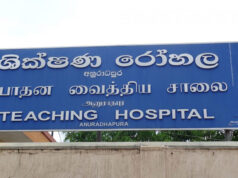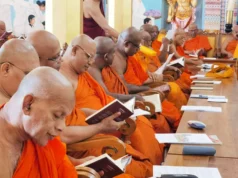The United Nations Human Rights Commission (UNHRC) has declared that in the absence of credible investigations and prosecutions into alleged war crimes accusations undertaken by Sri Lanka, a special team based there was involved in ongoing investigations in several jurisdictions.
The declaration was made on Wednesday (21) by Nada Al-Nashif, United Nations Deputy High Commissioner for Human Rights at the commencement of the latest sessions.
A statement issued by UNHRC quoted Nashif as having said the project team that had been established in their Office to advance accountability continued to make progress pursuant to resolution 51/1. “The team is in the process of providing concrete support to several jurisdictions who have ongoing criminal justice investigations.
It is conducting proactive investigative work on key cases and collecting, consolidating and analysing information and evidence from a variety of UN and other sources, which is preserved in a repository so as to be used for future accountability initiatives. Victims continue to be placed at the heart of this work, including through our active engagement with victim organisations and civil society more broadly.”
Nashif has reiterated that accountability remained the fundamental gap in attempts to deal with the past. The UN official said: “As long as impunity prevails, Sri Lanka will achieve neither genuine reconciliation nor sustainable peace. Fundamentally, it is and remains the responsibility of the Sri Lankan authorities to directly acknowledge past violations and undertake credible investigations and prosecutions, alongside other accountability measures.
However, as long as an “accountability deficit” remains, the international community can – and should – play complementary roles. Means to do so include use of accepted principles of universal and extraterritorial jurisdiction to investigate and prosecute alleged perpetrators, and support the relevant accountability processes in third States, as well as fair application of targeted sanctions against credibly alleged perpetrators.”
Commenting on plans for a Truth Commission, Nashif pointed out Sri Lanka has witnessed too many ad hoc commissions in the past that failed to ensure accountability. She said: “The Office of Missing Persons has not achieved the results that provide satisfaction to victims. What is needed is a coherent plan that connects the different elements of truth, redress, memorialization, accountability and creates the right enabling environment for a successful transitional justice process.”








